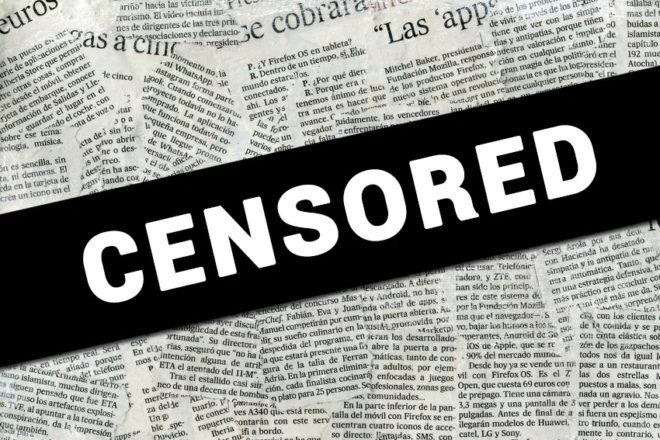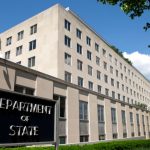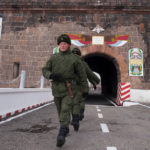- 9 February, 2018
- Democracy and Human Rights

The presentation of the Armenian translation of the book “Awakening of Forces” by Mikheil Saakashvili, the former president of Georgia and opposition leader in Ukraine, took place in Yerevan on January 7 after being cancelled twice. Many people, including the author of the Armenian translation of the book, qualified the hindering of the event as an act of censorship. Over the past year, however, this is the third case of overt censorship in Armenia. Though there are different means and excuses, the essence of censorship is the same.
Lack of resources
The recent quite, subtle and indirect censorship in Armenia appeared in the center of public attention in July 2017, when the Golden Apricot Yerevan International Film Festival scrapped the special program “Armenians: Internal and External Views” two days before kick-off.
The reason for the censorship was Gagik Ghazare’s “Listen to Me: Untold Stories beyond Hatred” and Pouria Heidary Oureh’s (Iran) “Apricot Groves”. Both films tell about the LGBT community.
The Union of Cinematographers of Armenia, which was supposed to screen the non-competition program in its hall, refused to do so due to public outcry and offered to show the program in case the aforementioned two films were removed from the list.
As a result, the Golden Apricot Film Festival announced that it does not have enough time and resources to screen the aforementioned films at another location, by cancelling the entire program.
Nevertheless, against the background of this scandal, President Serzh Sargsyan, who participated in the film festival, called it “a carrier of ideas of humanity.”
Agreement on the format
A few months after “Golden Apricot” censorship scandal, the RA Ministry of Culture banned the exhibition dedicated to the victims of Soviet dictatorship.
The format was introduced as the reason for the ban on the exhibition entitled “Eclipse” that was due to be held in Hovhannes Tumanyan Museum in August 2017. The Ministry of Culture stated that the open-air format of the exhibition had not been agreed, and it served as the reason for its ban in the Tumanyan Museum.
“Eclipse” told about the Lenin-Stalin era terror and Lenin-Stalin-Kemal cooperation, which led to the deaths of 50 thousand Armenians (including the intellectuals). It was open for 22 days, after which it was closed, and later reopened at another location.
Technical issues
In January 2018, it became known that the administration of Yeghishe Charents museum cancelled the presentation of the Armenian translation of the book “Awakening of Forces” by Mikheil Saakashvili in spite of the preliminary agreement reached. The book translator Mikayel Nahapetyan was informed by the administration that the signing of the contract is impossible “due to technical issues.”
At the same time, discussions about Saakashvili being an “anti-Armenian” politician resumed again in the social networks, and many people justified the cancellation of the book presentation. These speculations were relatively silenced when some media outlets reminded that RA President Serzh Sargsyan had awarded Saakashvili with the “Medal of Honor” state award. Saakashvili also reacted to the cancellation of the book presentation. He wrote on his Facebook page that he thought Ukraine is in a deep political stagnation, but “issues in Armenia are even deeper.”
The circumstance of the censorship of Saakashvili’s book triggered higher public resonance after the second cancellation of the presentation. Some time after reaching an agreement, “Noyan Tapan” bookstore refused to host the presentation. The director of the bookstore informed the translator that they refuse to hold the event and later sell the books in their bookstore, justifying the step by the desire not to have problems.
These three stories are evidence of indirect censorship in the country. And even if in some cases the censorship is not specifically directed from anywhere, it is a response to the present political system of values, and is aimed at avoiding certain issues that will be likely to be faced.
Aren Melikyan
“Union of Informed Citizens”




